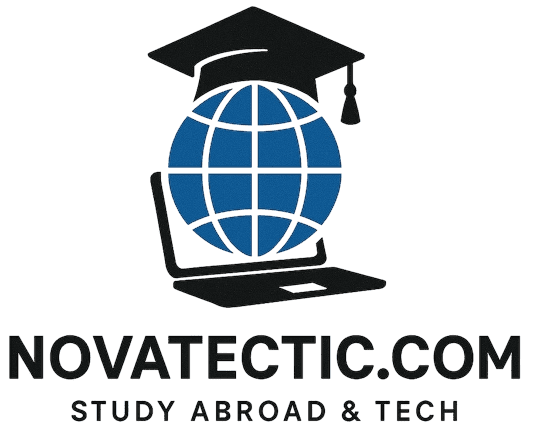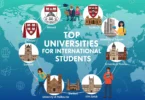Career-Focused Study Abroad Programs
Introduction
Choosing the right study abroad program is not just about academic curiosity—it’s about preparing for a successful career. Over my 14 years as a study abroad consultant, I’ve guided students toward programs that combine academic excellence with practical, career-oriented experiences.
Career-focused programs abroad are designed to equip students with the knowledge, skills, and international exposure necessary to thrive in today’s competitive job market. This guide will help you identify the best programs, understand their benefits, and make an informed choice.
1. What Are Career-Focused Study Abroad Programs?
Career-focused programs integrate academic learning with professional skills development. They often include:
- Internships or co-op placements
- Industry projects
- Mentorship from experienced professionals
- Networking opportunities with global companies
These programs are popular in fields like business, engineering, IT, healthcare, and design. They give students a competitive edge, making them more employable immediately after graduation.
Consultant Insight: Students who choose career-focused programs often secure higher-paying jobs and international opportunities faster than those in purely academic programs.

Benefits of Career-Focused Programs
2. Benefits of Career-Focused Programs
- Practical Experience: Gain hands-on experience relevant to your field, enhancing your resume.
- Global Networking: Build connections with peers, professors, and industry leaders worldwide.
- Internships & Placements: Many programs offer internships integrated into the curriculum.
- Skill Development: Learn professional soft skills such as teamwork, communication, and problem-solving.
- Job-Ready Graduates: Employers value candidates who have real-world experience.
Pro Tip: Choose programs that provide industry-recognized certifications or collaborations with leading companies.
3. Popular Career-Focused Programs Abroad
Business & Management
- MBA programs with internship opportunities
- Specialized courses in finance, marketing, and entrepreneurship
- Leadership and project management training
Engineering & Technology
- Programs integrating research projects and industrial placements
- Software development, AI, and robotics-focused courses
- Global technology competitions and hackathons
Healthcare & Life Sciences
- Clinical internships and research projects
- Programs combining theory with hands-on laboratory work
- Opportunities to work in international hospitals or labs
Creative & Arts Programs
- Design studios, media production projects, and exhibitions
- Collaboration with companies in fashion, media, and entertainment
- Real-world portfolio building
Consultant Insight: Always review program curriculum to ensure it aligns with your career goals. Not all programs labeled “career-focused” provide meaningful industry exposure.
4. How to Choose the Right Program
- Align With Career Goals: Identify your desired industry or role.
- Check Internship Opportunities: Ensure the program offers real-world experience.
- Research University Partnerships: Programs partnered with companies offer better networking.
- Consider Duration & Flexibility: Some programs are short-term, others integrate full-degree options.
- Evaluate Alumni Success: Alumni career outcomes reflect program effectiveness.
Consultant Tip: Speak with program coordinators and alumni to get insights about placement rates and global exposure.

Application Tips for Career-Focused Programs
5. Application Tips for Career-Focused Programs
- Prepare a Strong Resume & Statement of Purpose (SOP): Highlight career aspirations and prior experience.
- Letters of Recommendation: Choose recommenders who can speak to your professional and academic strengths.
- Portfolio or Project Work: For creative and engineering fields, showcase relevant work.
- Meet Language & Exam Requirements: IELTS, TOEFL, GRE, or GMAT as required.
Pro Advice: Start the application process early and tailor documents to the career-oriented nature of the program.
6. Funding Career-Focused Programs
Studying abroad can be costly, but funding options exist:
- Scholarships: Many universities offer merit-based or need-based scholarships for international students.
- Grants & Fellowships: Check for industry or government-sponsored programs.
- Part-Time Work: Some countries allow international students to work while studying.
- Internship Stipends: Paid internships can offset living expenses.
Consultant Insight: Research funding opportunities specific to your field—engineering, business, and healthcare often have dedicated financial support.
7. Preparing for Career Success Abroad
- Develop Soft Skills: Leadership, communication, and cultural adaptability are essential.
- Engage in Networking: Attend workshops, seminars, and industry events.
- Seek Mentorship: Guidance from experienced professionals helps shape your career path.
- Leverage University Career Services: Utilize resume workshops, mock interviews, and job fairs.
Pro Tip: Career-focused programs are more than classes—they’re launchpads for professional growth.

Post-Graduation Opportunities
8. Post-Graduation Opportunities
Graduates from career-focused programs often have:
- Better employability: Higher chances of landing jobs in top companies.
- International work exposure: Global internships can lead to full-time roles abroad.
- Entrepreneurial support: Some programs provide startup incubation or mentorship.
- Professional networking: Alumni networks enhance career growth worldwide.
Consultant Insight: Strategic program choice and active engagement can make your study abroad journey a direct path to career advancement.
Conclusion
Choosing a career-focused study abroad program is an investment in your future professional success. By carefully selecting a program aligned with your career goals, engaging fully in internships and projects, and leveraging networking opportunities, you can graduate with not just a degree but also practical skills, global experience, and enhanced employability.









